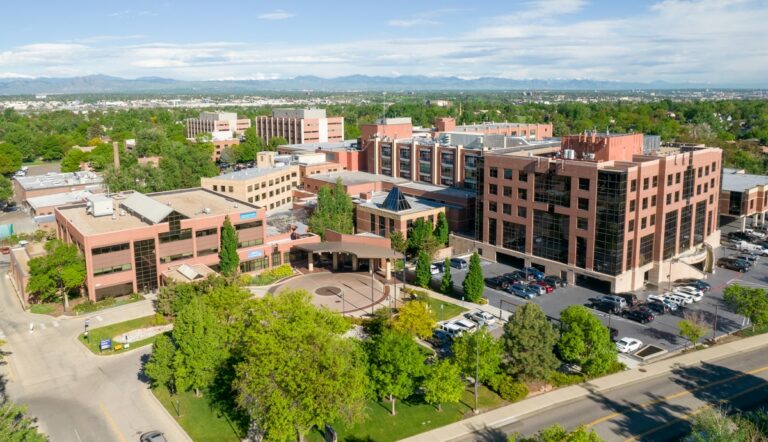Denver, CO Drug Rehabs
Showing 1 to 15 of 62 results
-
1st Priority Institute Better Living
Levels of Care: Outpatient
Payment Options: Cash or self-payment, Medicaid, Medicare, Private health insurance, State-financed health insurance plan other than Medicaid
-
All Seasons Counseling LLC
Levels of Care: Outpatient,
Payment Options: Cash or self-payment, Medicaid, Medicare, Private health insurance, State-financed health insurance plan other than Medicaid,
-
Ad
 5 miles away
5 miles away
CuraWest Detox
Levels of Care: Inpatient, Outpatient, Detox, Aftercare, Residential, Full Spectrum of Care, Partial-Hospitalization, Intensive Outpatient, Telehealth, Medication-Assisted Treatment, Sober-Living Home, Intervention
Payment Options: Financing Available, Private Pay, AmeriHealth, Blue Cross Blue Shield, ComPsych, Anthem, Health Net, MultiPlan, Magellan Health, Optima Health, Insurance Accepted, Humana, Optum, Aetna, Cigna, United Healthcare
-
AspenRidge Recovery
Levels of Care: Outpatient,
Payment Options: Cash or self-payment, Medicaid, Medicare, Private health insurance, State-financed health insurance plan other than Medicaid, Federal military insurance (e.g., TRICARE), IHS/Tribal/Urban (ITU) funds,
-
AspenRidge Recovery Lakewood
Levels of Care: Outpatient,
Payment Options: Cash or self-payment, Medicaid, Medicare, Private health insurance, State-financed health insurance plan other than Medicaid, Federal military insurance (e.g., TRICARE), IHS/Tribal/Urban (ITU) funds,
-
Center for Change LLC
Levels of Care: Outpatient,
Payment Options: Cash or self-payment, Medicaid, Medicare, Private health insurance, State-financed health insurance plan other than Medicaid, Federal military insurance (e.g., TRICARE), IHS/Tribal/Urban (ITU) funds,
-
Ad
 45 miles away
45 miles away
Mountain Springs Recovery
Levels of Care: Inpatient, Detox, Residential, Medication-Assisted Treatment
Payment Options: Private Pay, AmeriHealth, Blue Cross Blue Shield, ComPsych, Beacon, Anthem, Health Net, Magellan Health, Optima Health, Insurance Accepted, Humana, Optum, Aetna, Cigna, United Healthcare
-
Center for Recovery Inc
Levels of Care: Outpatient,
Payment Options: Cash or self-payment, Medicaid, Medicare, Private health insurance, State-financed health insurance plan other than Medicaid, Federal military insurance (e.g., TRICARE), IHS/Tribal/Urban (ITU) funds,
-
Choices in Living
Levels of Care: Outpatient,
Payment Options: Cash or self-payment, Medicaid, Medicare, Private health insurance, State-financed health insurance plan other than Medicaid, Federal military insurance (e.g., TRICARE), IHS/Tribal/Urban (ITU) funds,
-
Colorado Addictions Consulting
Levels of Care: Outpatient,
Payment Options: Cash or self-payment, Medicaid, Medicare, Private health insurance, State-financed health insurance plan other than Medicaid, Federal military insurance (e.g., TRICARE), IHS/Tribal/Urban (ITU) funds,
-
Colorado Coalition for the Homeless
Levels of Care: Outpatient,
Payment Options: Cash or self-payment, Medicaid, Medicare, Private health insurance, State-financed health insurance plan other than Medicaid, Federal military insurance (e.g., TRICARE), IHS/Tribal/Urban (ITU) funds,
-
Colorado Coalition for the Homeless
Levels of Care: Outpatient,
Payment Options: Cash or self-payment, Medicaid, Medicare, Private health insurance, State-financed health insurance plan other than Medicaid, Federal military insurance (e.g., TRICARE), IHS/Tribal/Urban (ITU) funds,
-
Colorado Health Network Inc
Levels of Care: Outpatient,
Payment Options: Cash or self-payment, Medicaid, Medicare, Private health insurance, State-financed health insurance plan other than Medicaid, Federal military insurance (e.g., TRICARE), IHS/Tribal/Urban (ITU) funds,
-
Colorado Medication Assisted Recovery
Levels of Care: Outpatient,
Payment Options: Cash or self-payment, Medicaid, Medicare, Private health insurance, State-financed health insurance plan other than Medicaid, Federal military insurance (e.g., TRICARE), IHS/Tribal/Urban (ITU) funds,
-
Comm Alc/Drug Rehab and Education Ctr
Levels of Care: Outpatient,
Payment Options: Cash or self-payment, Medicaid, Medicare, Private health insurance, State-financed health insurance plan other than Medicaid, Federal military insurance (e.g., TRICARE), IHS/Tribal/Urban (ITU) funds,
-
Community Reach Center Inc
Levels of Care: Outpatient,
Payment Options: Cash or self-payment, Medicaid, Medicare, Private health insurance, State-financed health insurance plan other than Medicaid, Federal military insurance (e.g., TRICARE), IHS/Tribal/Urban (ITU) funds,
-
Community Reach Center Inc
Levels of Care: Outpatient,
Payment Options: Cash or self-payment, Medicaid, Medicare, Private health insurance, State-financed health insurance plan other than Medicaid, Federal military insurance (e.g., TRICARE), IHS/Tribal/Urban (ITU) funds,
Loading results...
No listings found.
Showing 1 to 15 of 62 results
Government Programs
Find local government programs that promote sober living and will help you find peace in your day to day life.
Colorado Narcotics Anonymous
P.O. Box 1437Denver, CO 80201
Mile High Area Service Committee of Narcotics Anonymous
P. O. Box 140100Edgewater, CO 80214-0100 303-832-3784)
College Programs
The CU Denver Student and Community Counseling Center
University of Colorado Denver
900 Auraria ParkwayDenver, CO 80204 Visit Website ⟶ 303-315-7270
Harm Reduction Group-Student and Community Counseling Center
Metropolitan State University of Denver
900 Auraria ParkwayDenver, CO 80204 Visit Website ⟶ 303-315-727
Counseling and Personal Development
Regis University
3333 Regis BoulevardDenver, Colorado 80221-1099 Visit Website ⟶ 303-458-3507
Counseling Services
University of Denver
2240 E Buchtel Blvd3N, Denver, CO 80210 Visit Website ⟶ 303-871-2205
Health & Counseling Services
Johnson & Wales University-Denver
1800 Pontiac Street DenverCO 80220 Visit Website ⟶ 303-256-9448
Counseling Services
Adventist University of Health Sciences
950 E. Harvard Ave. Suite B80 DenverCO 80210 Visit Website ⟶ 407.303.5600 ext. 110.1075
Counseling Services
Platt College-Aurora
3100 S. Parker Rd. AuroraCO 80014 Visit Website ⟶ 303-369-5151
Counseling Center
Colorado School of Mines
1770 Elm StreetGolden, CO 80401 Visit Website ⟶ 303-273-3377
Counseling and Psychiatric Services (CAPS)
University of Colorado Boulder
1900 Wardenburg DriveBoulder, CO 80309 Visit Website ⟶ 303-492-2277
AA and NA Meetings in Denver
Denver Area Central Committee of Alcoholics Anonymous
2926 Zuni St. #202, Denver 80211Fellowship
Alcoholics Anonymous (AA)
Hours
Tuesday 9:00 am - 5:00 pm
Westminster
Rocky Mountain Presbyterian Church, 4097 Main St. Westminster, CO 80031Fellowship
Narcotics Anonymous (NA)
Hours
Monday 6:30 pm - 7:30 pm
BRIGHTON
Ambulance Building, 1750 Egbert St. Brighton, CO 80601Fellowship
Narcotics Anonymous (NA)
Hours
Monday 7:00 pm - 8:00 pm
Boulder County AA
5401 Western Ave. Suite D. Boulder, Colorado 80301Fellowship
Alcoholics Anonymous (AA)
WELCOME HOME GROUP
5375 Western Ave, Boulder, CO 80301Fellowship
Narcotics Anonymous (NA)
Hours
Monday 7:00 pm - 8:15 pm
Feature your center
Ready to connect with treatment seekers across the country? Enter your information to learn about our advertising options and get in contact with our development team.

